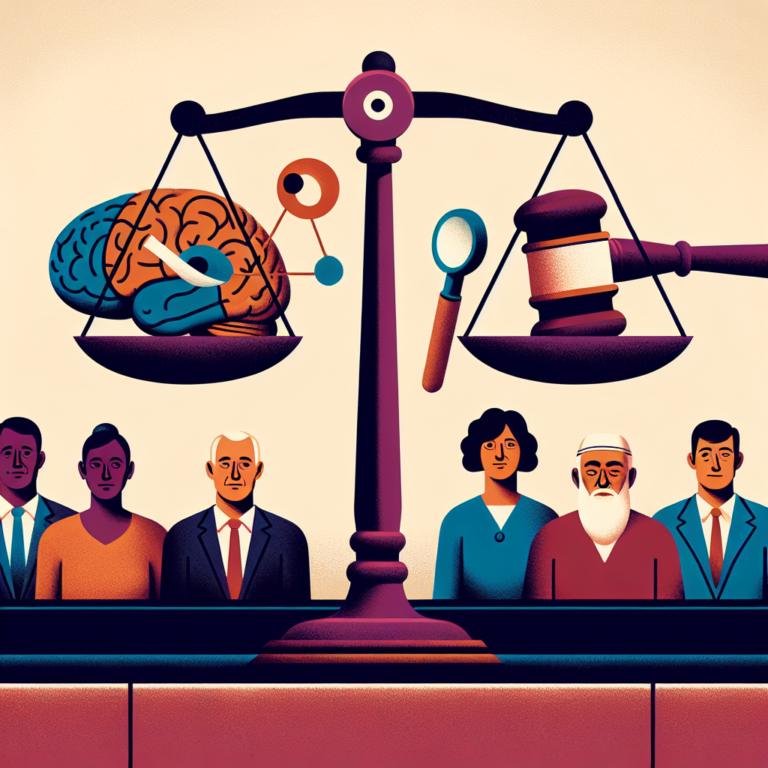
Introduction
Imagine standing at the edge of a tragedy, a death that leaves family and friends grappling with unanswered questions. What drove someone to take their life? Was it a sudden decision or the culmination of long-standing issues? In such complex scenarios, forensic psychology plays a pivotal role, and one of its most powerful tools is the psychological autopsy. In this article, "Decoding the Unexplained: Psychological Autopsy as a Tool for Forensic Psychology," we’ll explore how this innovative approach sheds light on the psyche of deceased individuals, helping investigators, families, and mental health professionals understand the intricate web of human emotions and motivations that can lead to tragedy.
Understanding Psychological Autopsy
What is a Psychological Autopsy?
A psychological autopsy is a thorough, retrospective analysis conducted to deduce the mental state of an individual prior to their death, particularly in cases of suicide. It aims to reconstruct the personal circumstances, experiences, and psychological factors contributing to the individual’s final decision.
Components of a Psychological Autopsy
Interviews: Conducting interviews with family, friends, and coworkers to gather subjective accounts of the deceased’s mental health and behavior.
Records Review: Examining medical records, school reports, and any prior psychological evaluations.
- Environmental Factors: Assessing the deceased’s living conditions, social networks, and any significant life events that could impact mental well-being.
This comprehensive method offers crucial insights into an individual’s life, creating a clearer picture of what might have driven them to act in a certain way.
Historical Context
The concept of a psychological autopsy dates back to the mid-20th century, gaining traction through the work of pioneers like Edwin Shneidman and his focus on suicide prevention. With suicide rates rising worldwide, understanding the circumstances surrounding these tragic decisions has never been more crucial.
The Role of Psychological Autopsy in Forensic Investigations
Insights into Mental States
Forensic psychology often involves deciphering human behavior amidst chaos. Psychological autopsies are invaluable because they help forensic psychologists determine the mental and emotional state of the deceased, providing insights that can inform legal proceedings and family understandings.
Case Study: The Suicide of an Aspiring Artist
Consider the case of Jane, a talented painter who took her life just before a major exhibition. A psychological autopsy revealed long-standing struggles with anxiety and depression that many around her had dismissed. Interviews with her friends disclosed that while she appeared happy on the outside, she had confided her fears of inadequacy leading up to her death.
By employing psychological autopsy techniques, investigators were able to understand her internal turmoil, which informed the narrative presented in legal discussions about potential mental health interventions that could have altered her fate.
Clarifying Ambiguities in Death Investigations
In many instances, the cause of death may remain ambiguous, leading to families and authorities facing numerous questions. Psychological autopsies can help clarify these ambiguities, revealing critical details about the deceased’s state of mind.
Case Study: The Mysterious Death of a College Student
Andrew, a college student found dead in his dorm room, raised suspicions of foul play. However, a psychological autopsy uncovered that he had been facing severe academic pressure, leading to suicidal ideation. The thorough investigation not only revealed the pressures he faced but also emphasized the role educational institutions must play in mental health advocacy.
Contribution to Criminal Cases
When the death of an individual is involved in a criminal investigation, understanding the psychological context can provide vital information. In these situations, psychological autopsies serve to bridge the gap between mental health understanding and legal implications.
Case Study: The Unsolved Murder of a Community Leader
In the case of Daniel, a known activist found dead under suspicious circumstances, a psychological autopsy helped investigators understand his life threats and extremist opposition he faced, thereby providing new leads in the investigation. Understanding the psychological factors involved also helped investigators focus on specific suspects, enhancing their investigative strategies.
The Process of Conducting a Psychological Autopsy
Steps Involved
- Initial Assessment: Gathering preliminary data regarding the death—circumstances, time, and place.
- Comprehensive Interviews: Engaging with people who had meaningful interactions with the deceased.
- Document Review: Analysing available documentation and records relevant to the individual’s mental health.
- Synthesis of Findings: Compiling information to create a comprehensive understanding of the deceased’s mental state.
Tools and Techniques
Forensic psychologists may utilize various tools and inventories to assist in this process, including scales for measuring depression or anxiety and life history calendars to outline significant events in the individual’s life.
Challenges in Psychological Autopsy
Reliability Concerns
One major challenge in conducting psychological autopsies is the reliability of the information gathered. Memories can be biased or affected by grief, leading to discrepancies in accounts.
Ethical Considerations
Conducting a psychological autopsy requires sensitivity. A thorough understanding of the deceased’s experiences leads to the risk of re-traumatizing survivors, thus demanding careful handling of the process.
The Impact of Psychological Autopsy on Families and Communities
Healing for Survivors
Families left in the wake of a sudden death often experience profound grief and confusion. Psychological autopsies can provide closure by elucidating the complex emotions and situations that may have contributed to the tragedy.
Advocacy for Mental Health
Insight gained from psychological autopsies can lead to increased awareness of mental health issues within communities, fostering a culture of support and understanding.
Conclusion
In conclusion, "Decoding the Unexplained: Psychological Autopsy as a Tool for Forensic Psychology" exemplifies how a structured approach to understanding mental states can lead to significant insights for both legal proceedings and family healing. As society continues to grapple with mental health crises, the relevance of psychological autopsies in forensic settings cannot be overstated. They not only aid in understanding the decisions that lead to tragedy but also highlight the importance of mental health awareness, preventative measures, and community support.
FAQs
What is the primary aim of a psychological autopsy?
- The main goal is to reconstruct the deceased’s mental state to understand the factors that may have contributed to their death.
Who conducts psychological autopsies?
- Typically, trained forensic psychologists and mental health professionals conduct psychological autopsies.
Are psychological autopsies used in legal cases?
- Yes, they are often utilized in legal investigations to better understand motives and circumstances surrounding deaths.
How reliable are the findings from a psychological autopsy?
- While psychological autopsies aim for accuracy, the reliability of findings can be affected by the subjective nature of interviews and memory biases.
- Can psychological autopsy findings help prevent future tragedies?
- Absolutely. By identifying mental health issues and triggers, psychological autopsies can inform preventative measures and mental health advocacy.
Through the lens of psychological autopsy, we not only decode the complexities of individual lives but also foster a deeper understanding of ourselves and the communities we inhabit. It encourages us to empathize, advocate, and support those facing their own silent battles.















